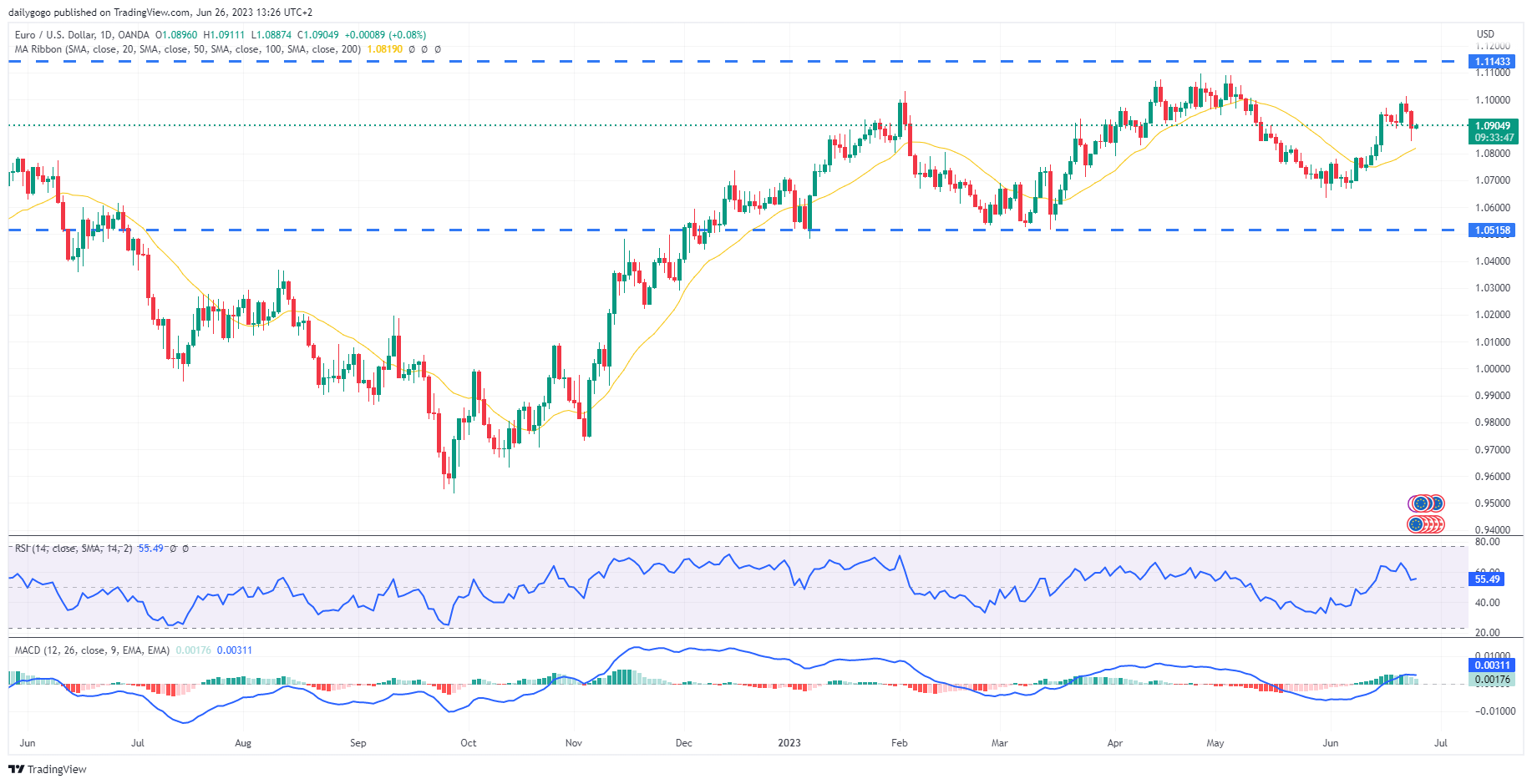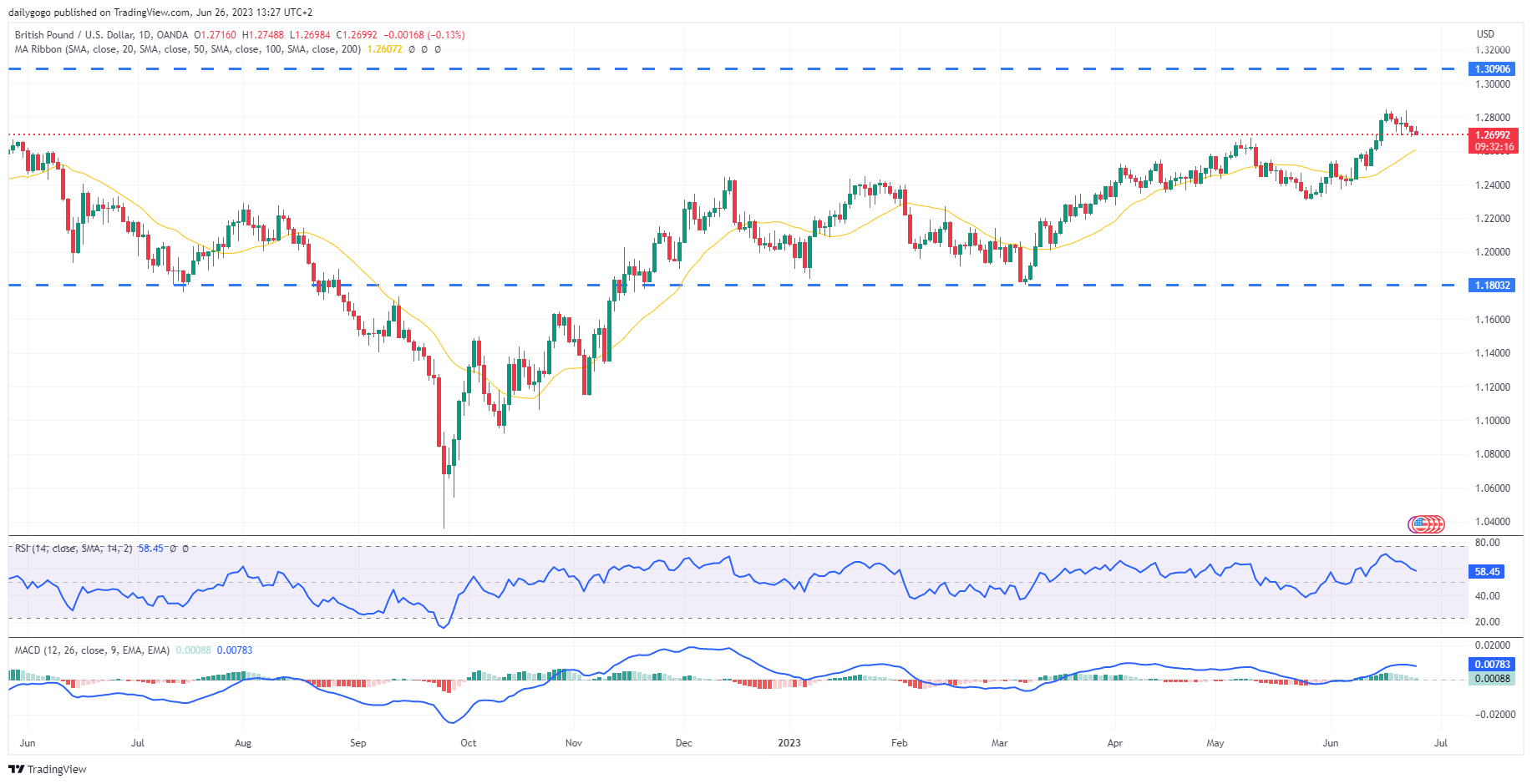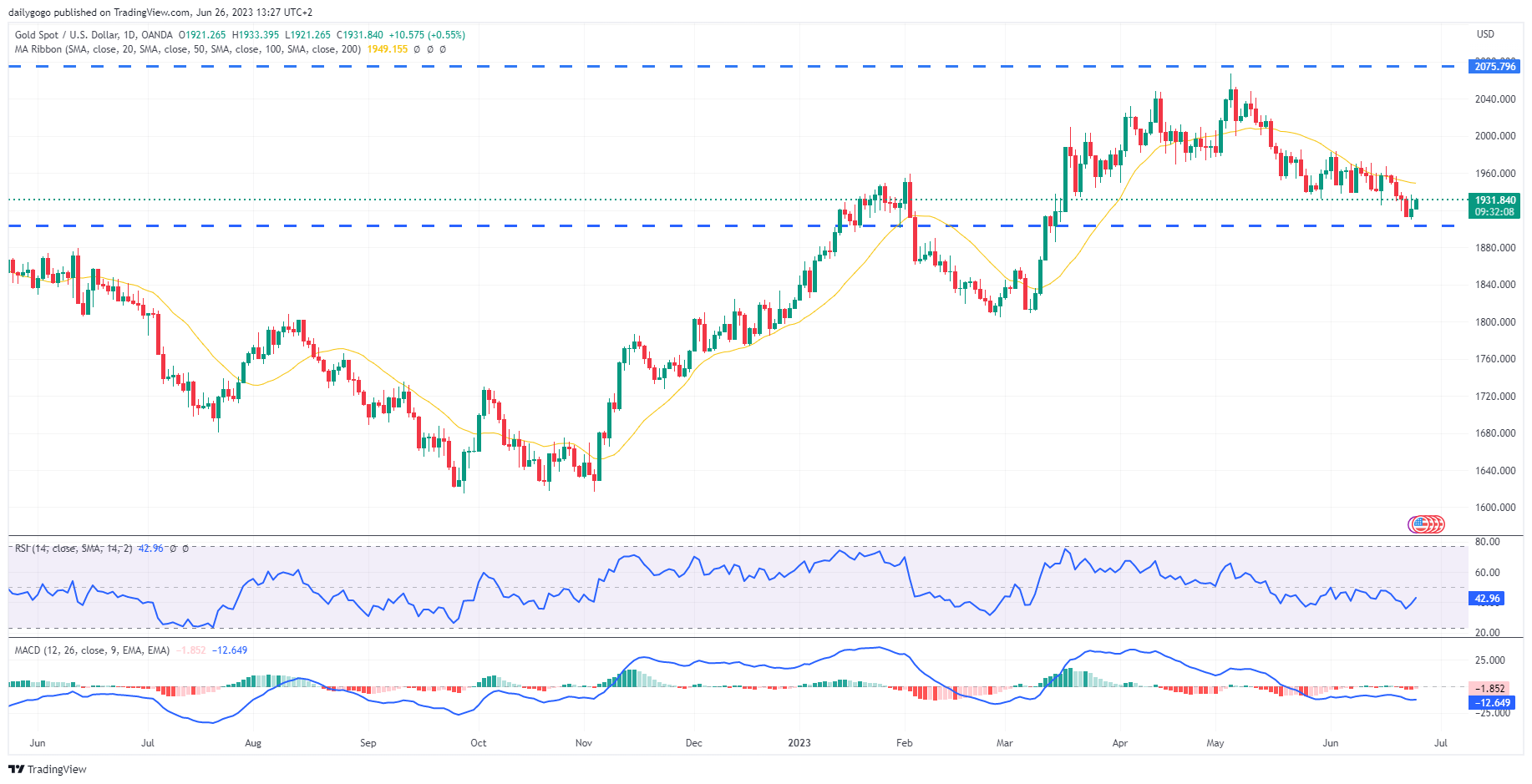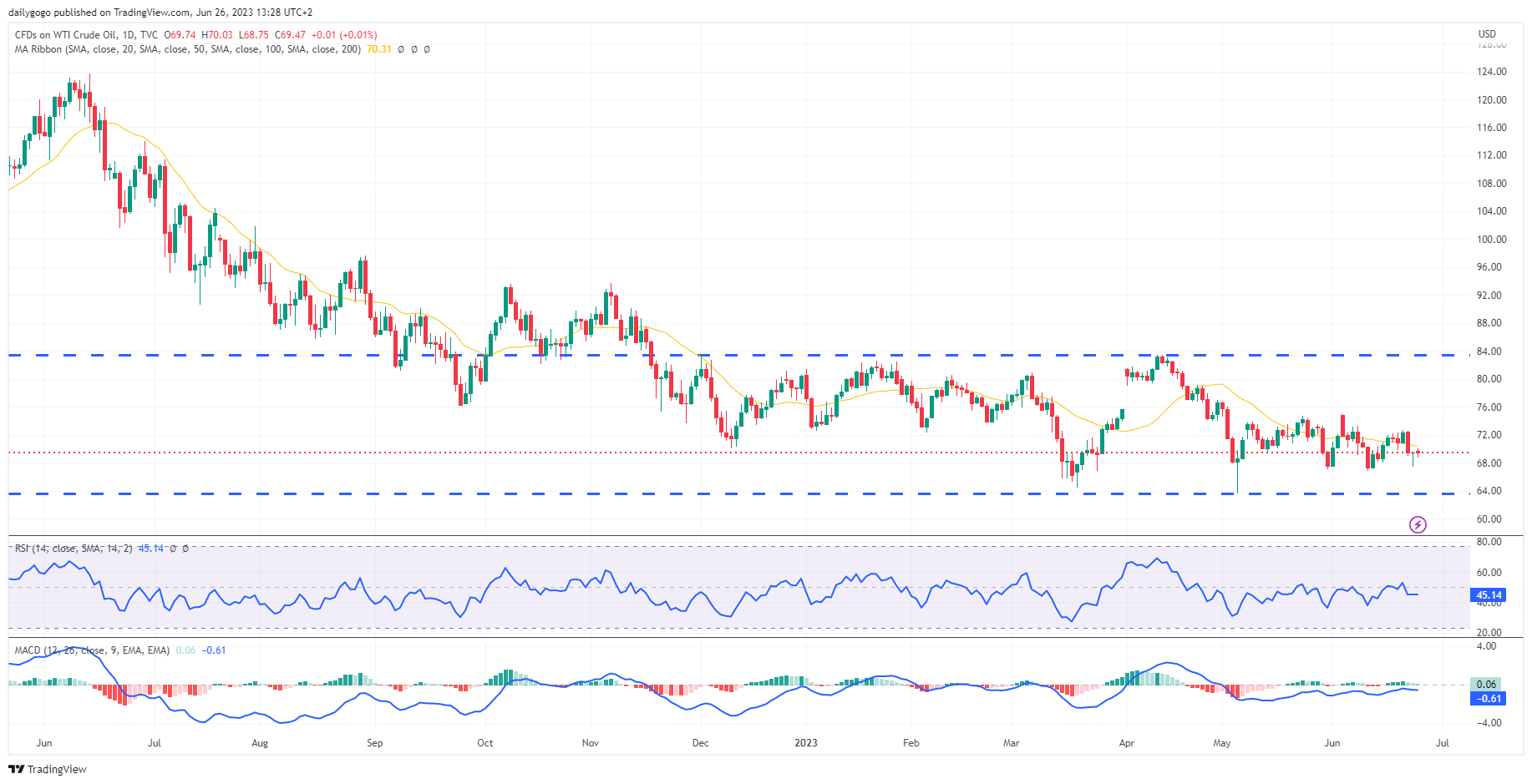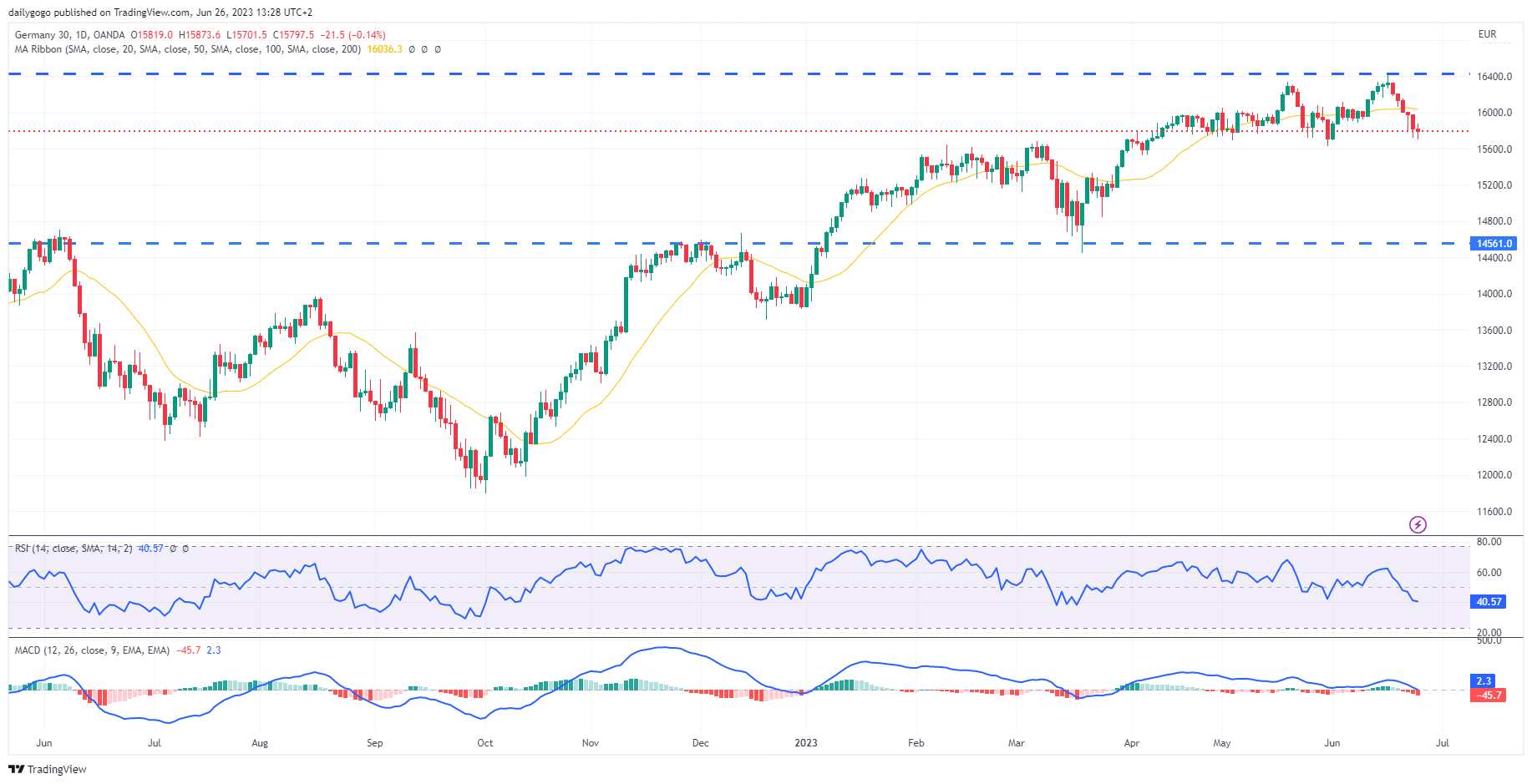EURUSD
- EUR/USD rose to 1.0907, recovering slightly after last week's decline caused by the stagnation of eurozone business growth in June, as indicated by PMI data.
- The upcoming release of Germany's Ifo business survey, a closely watched indicator, is anticipated to reveal a further deterioration in business confidence within the eurozone's largest economy.
- In early European trade on Monday, the U.S. dollar weakened marginally but remained near its recent one-week high. Risk aversion was elevated due to concerns about the potential impact of prolonged monetary tightening cycles on global growth and the recent political turmoil in Russia.
- The dollar initially received a boost over the weekend following reports of an uprising in Russia involving the mercenary group Wagner. However, the subsequent halt of the march on Moscow has diminished this boost.
- Market participants are closely monitoring EUR/USD as it demonstrates a modest recovery from its recent losses. Attention is now focused on the release of Germany's Ifo business survey, which is expected to highlight further deterioration in business sentiment. The U.S. dollar's strength continues to be influenced by risk aversion stemming from geopolitical events and concerns surrounding the duration of monetary tightening cycles.
Closing statement: EUR/USD is experiencing a modest rebound from last week's losses. The focus shifts to Germany's Ifo business survey, which could contribute to further pressure on the euro. Ongoing risk aversion and geopolitical developments may influence the strength of the U.S. dollar.
GBPUSD
- GBP/USD rose 0.2% to 1.2739, recovering from last week's 0.8% decline after the Bank of England's surprise 50 basis points interest rate hike.
- The Bank of England's rate hike raised concerns about a potential British recession as it aims to control inflation.
- The upcoming CBI distributive trades survey is expected to show fragile confidence in the U.K. retail sector.
- The DXY, which tracks the dollar against six other currencies, traded 0.2% lower at 102.358, following a gain of over 0.5% last week.
- Major central banks, including the U.S. Federal Reserve, signaled further interest rate hikes to combat elevated inflation.
| SMA (20) | Slightly Rising |
|
||
| RSI (14) | Slightly Falling | |||
| MACD (12, 26, 9) | Slightly Falling |
Closing statement: GBP/USD showed recovery after the Bank of England's surprise rate hike, while concerns about a British recession emerged. The upcoming CBI distributive trades survey is expected to reveal fragile confidence in the U.K. retail sector. The DXY experienced a decline despite recent gains, and major central banks signaled further interest rate hikes to address inflationary pressures.
GOLD
- Gold experienced a decline as the U.S. dollar strengthened following the Bank of England's larger-than-expected 0.5% interest rate hike.
- The price of gold rebounded from multi-month lows, finding support just above the March 16 low of $1,908 on Friday.
- Investors showed little concern for emerging geopolitical risks in Russia despite the events over the weekend.
- Federal Reserve President Jerome Powell's comments emphasized the possibility of additional rate hikes in the near term.
- Overall, gold (XAU/USD) faced downward pressure due to the stronger U.S. dollar, but found support and investors remained relatively unfazed by geopolitical developments.
| SMA (20) | Slightly Falling | |||
| RSI (14) | Slightly Rising |
|
||
| MACD (12, 26, 9) | Slightly Falling |
Closing statement: Gold (XAU/USD) encountered a decline as the U.S. dollar strengthened following the Bank of England's larger-than-expected interest rate hike. However, gold prices found support above previous lows, and investors appeared less concerned about emerging geopolitical risks. Federal Reserve President Jerome Powell's comments added weight to the possibility of further rate hikes in the near term.
CRUDE OIL
- Concerns about the Russian situation impacting energy supplies provided support for crude oil prices.
- Despite three production cuts announced by OPEC and its allies since October, supported largely by Saudi Arabia, crude oil prices have remained unaffected.
- The expectation of robust oil demand during this time of the year, driven by summer travel, contrasts with the surprising lack of impact on crude prices.
- Saudi Arabia aims for oil prices of $80 per barrel or higher by next month, but external factors, particularly the actions of global central banks, require patience.
- The race among central banks, including the Federal Reserve, Bank of England, and European Central Bank, to implement interest rate hikes before year-end introduces uncertainty that could impact global growth and oil demand.
| SMA (20) | Slightly Falling | ||
| RSI (14) | Neutral | ||
| MACD (12, 26, 9) | Slightly Falling |
Closing statement: Mixed concerns about the Russian situation provided support for crude oil prices. Despite production cuts by OPEC and its allies, crude oil prices remained unchanged. The expectation of strong summer demand contrasts with the lack of price impact. Saudi Arabia aims for higher oil prices, but the actions of global central banks, seeking interest rate hikes, introduce uncertainty that could affect oil demand and global growth.
DAX
- European shares declined, driven by a sharp drop in financial stocks, despite gains in the energy sector, due to concerns about political instability in Russia, a top oil producer.
- Deutsche Bank informed clients that it cannot guarantee full access to their Russian stocks, highlighting the challenges faced by global investors in recovering investments in Russian companies. Consequently, Deutsche Bank's shares fell by 2.4%.
- Germany, the largest economy in the region, is expected to experience a significant slowdown, with projected growth rates of 2.8% in 2023 and 0.3% in 2024, a substantial decrease from the 6.9% growth recorded in 2022.
- A study by consulting firm EY indicates that high interest rates will constrain bank lending in Europe this year and the following year, with a particular slowdown in Germany due to declining demand for loans.
- Overall, concerns about political instability in Russia and the projected slowdown in Germany contribute to the downward pressure on European shares, particularly in the financial sector.
| SMA (20) | Neutral | ||
| RSI (14) | Falling | ||
| MACD (12, 26, 9) | Slightly Falling |
Closing statement: European shares faced downward pressure, primarily driven by a decline in financial stocks, despite gains in the energy sector. Concerns regarding political instability in Russia and Deutsche Bank's announcement about limited access to Russian stocks affected market sentiment. The projected slowdown in Germany, coupled with high interest rates impacting bank lending, further contributed to the overall decline in European shares, particularly within the DAX index.
